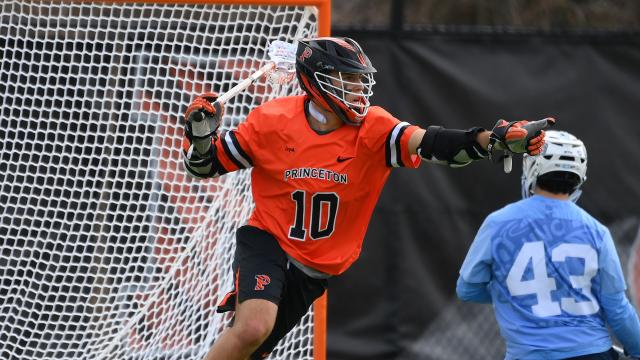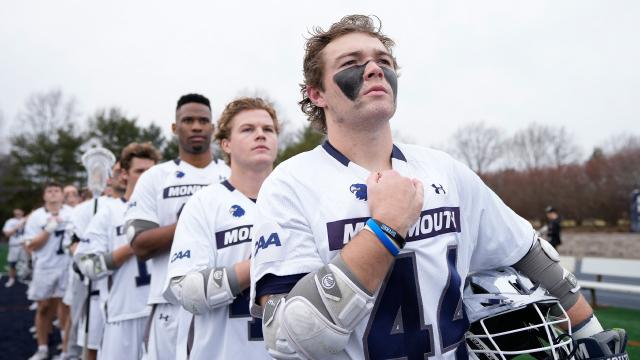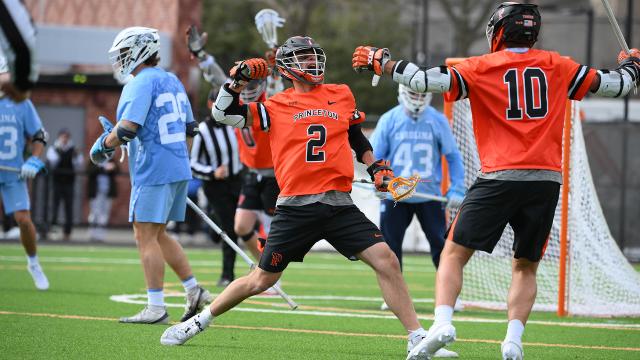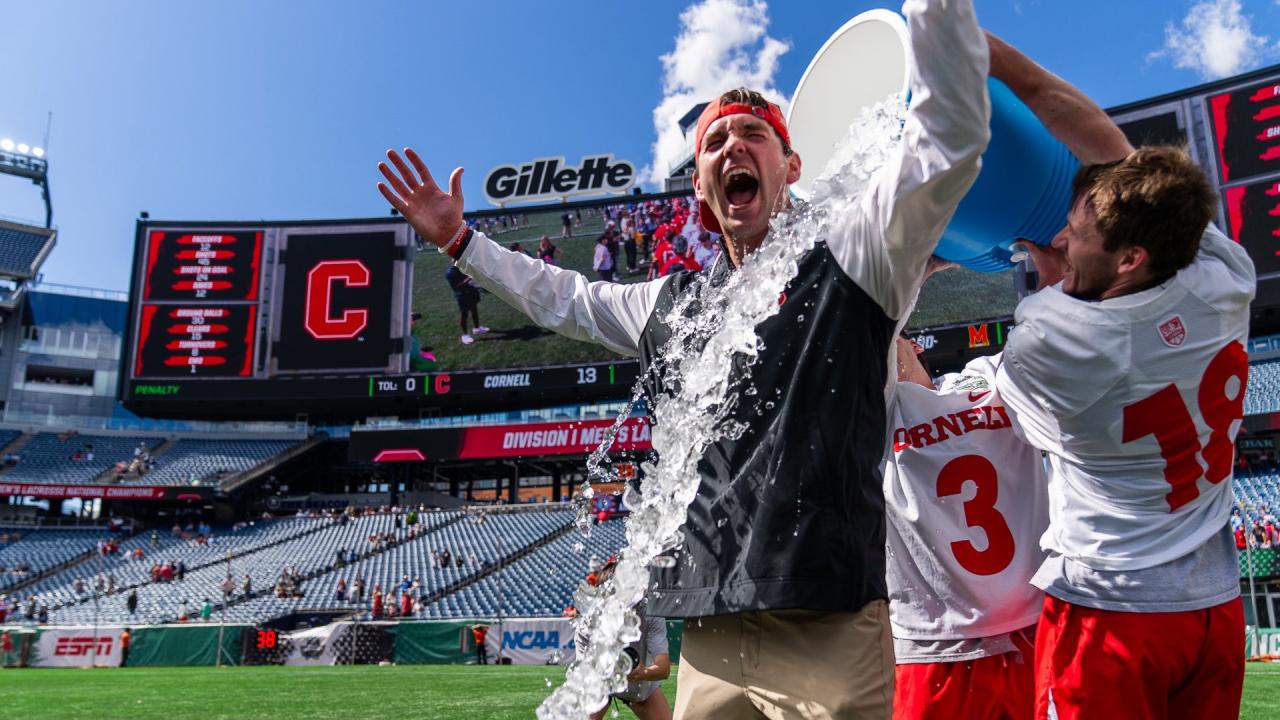
The Long Red Line That Led to a National Championship
This article was originally published May 29. We’re recirculating it as one of our top stories of 2025.
Written by Kenny DeJohn, this story goes inside the Cornell tradition that had a profound impact on Connor Buczek, who led the Big Red to their first NCAA championship in 48 years.
CONNOR BUCZEK WAS 15 YEARS OLD when Cornell fell to Syracuse in the 2009 NCAA championship game. It was the latest in a string of unsuccessful attempts to return to the peak of college lacrosse — an especially painful one considering the Big Red were 27.6 seconds away from ending their title drought before the Orange pulled off a miraculous play to tie the game and then won it in overtime.
Still, that game had a profound impact on both Buczek and Jordan Stevens, soon to be his teammate, assistant coach and best friend.
“I just remember watching them play, and you could feel the passion through the screen,” Stevens said. “You could see the guys pouring their hearts out.”
Buczek enrolled at Cornell, graduated from Cornell, volunteered at Cornell and ultimately rose the ranks at Cornell with the expectation of winning a championship as the head coach — not just for himself or his team, but for the decades of Big Red alumni who fell just short.
On Memorial Day at Gillette Stadium in Foxborough, Mass., Buczek made good on his mission. The Big Red rode six goals from Tewaaraton favorite CJ Kirst to beat Maryland 13-10, capturing the first national title for the program since 1977, in the same place where the 2009 campaign ended in heartbreak.
The normally stoic Buczek broke down in tears when talking to ESPN sideline reporter Dana Boyle, a sea of red shirts providing the backdrop for a celebration nearly a half-century in the making.
“Credit to these guys. Credit to these players. Credit to this staff. Credit to this tradition,” he said. “I’m the luckiest guy in the world.”
At Cornell, tradition never graduates. It’s because of The Long Red Line, a symbol of the enduring legacy and brotherhood shared by anyone who’s ever slipped a Cornell jersey over his head.
“The team today won a national championship, but there’s decades of people that sacrificed and tried to create the culture that we have,” Stevens said. “They laid the groundwork.”
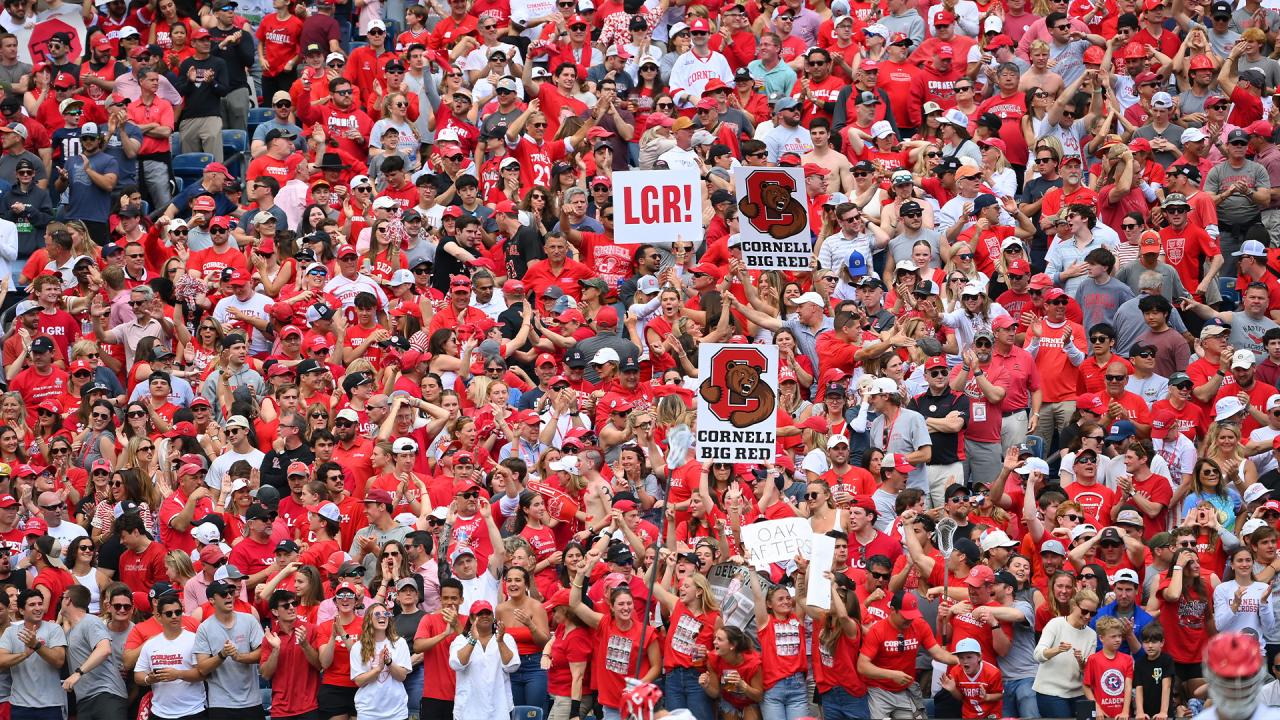
MIKE FRENCH CONTACTED CORNELL’S CAPTAINS — Kirst, Michael Bozzi, Christopher Davis, Michael Long and Walker Wallace — prior to the Big Red’s NCAA tournament first-round game against UAlbany. His message was simple: “I just said, ‘I know you’re the best team in the country, and you might be the best Cornell team ever. You’re that good.’”
That’s quite the statement coming from French, an unquestioned member of Cornell’s Mount Rushmore who played on the 1976 and 1977 championship teams — both of which went undefeated and could very well stake claim to the “best Cornell team ever” moniker.
French thought this Cornell team checked all the boxes. Superstar? Check. Supporting cast? Check. Depth, motivation and support? Check, check and check.
But most importantly, at least for French, it had the right guy in charge.
Buczek graduated from Cornell in 2015 after an All-American career and rejoined the program as a volunteer assistant. He was elevated to a full-time assistant in 2017 and continued to cut his teeth as a coach for a few years before the pandemic provided an unforeseen opportunity.
After Peter Milliman left to become the head coach at Johns Hopkins in the spring of 2020, Buczek was named the interim head coach, with Stevens staying on staff as the associate head coach. They were tasked with navigating an uncertain landscape as the Ivy League grappled with continued restrictions in 2021 and even the outright cancellation of the season.
The 2022 season saw Cornell make an improbable run to the NCAA championship game. It lost to Maryland. But that run was all the alumni needed to see to put their full faith in Buczek, who at the time was the youngest head coach in Division I lacrosse.
Not long after that game, his interim tag was removed.
“The alumni base, a handful of us, were involved,” French said. “[Former Cornell athletic director Andy Noel] called upon us and had this ad hoc group of former players who were very aligned with the program over the years. We were very supportive of Connor being hired.”
Buczek, who turns 32 on June 10, is the youngest head coach to win the Division I championship since 31-year-old Don Zimmerman led Johns Hopkins to the national title in 1984.
It killed Rob Pannell, a 2013 Cornell graduate, not to be in Foxborough on Monday. He was busy at Premier Lacrosse League training camp in Albany acclimating to his new team, the Maryland Whipsnakes. He supported from afar and has long made his support for Buczek clear.
“He lived it,” Pannell said. “He came in as a freshman and was the hardest worker in his class. 1A and 1B was Jordan Stevens. He just got what it means to be a Cornell lacrosse player. … Connor’s the perfect man for the head coaching job, and Jordan’s right there by his side. The two of them together are exactly what Cornell needed for this to happen.”
(On Wednesday, Ty Xanders broke the surprising news that Stevens was stepping down as associate head coach and defensive coordinator. He told Inside Lacrosse he made the decision previously that this would be his final season. It just so happened to end on top.)
Pannell tried to hide it from his new Whipsnakes teammates, but he admitted to shedding a few tears when his program finally returned to the pinnacle of the sport. French, too, was emotional.
French, 72, was born in St. Davids, Ontario, Canada, a small town of 500 people. At the time, few Canadians were recruited for lacrosse in the United States. He had a night shift job on the assembly line lined up at General Motors thanks to his uncle. But legendary head coach Richie Moran had faith in French, and despite his parents’ wishes, he chose to take a chance on Cornell.
“Cornell changed my life,” French said. “I got there, and I learned from people from all walks of life, and they became my brothers, my best friends to this day. Everything that’s happened in my life is because of somebody with a Cornell background. That’s just the way it is.”
There is nothing like the Cornell lacrosse family. ... Through victory, through tragedy, we stick together.
2013 Cornell graduate Rob Pannell
WHAT DOES IT MEAN TO BE A CORNELL MAN? The answer varies ever so slightly depending on who you ask.
Hard work, reliability, selflessness and sacrifice are the main tenants. A willingness to pass on the legacy is another. How it manifests depends on the individual and his experiences.
But what never changes is the impetus of it all: Eamon McEneaney and George Boiardi.
McEneaney starred alongside French, winning the 1976 and 1977 NCAA championships. He went on to work at Cantor Fitzgerald, and when bombs were detonated below the World Trade Center’s North Tower in 1993, he led 65 co-workers to safety. They formed a human chain as McEneaney guided them down to the ground level from 106 floors above.
McEneaney tragically died during the terrorist attacks on September 11, 2001.
Boiardi, the consummate teammate, was struck in the chest by a lacrosse ball in the fourth quarter of a game against Binghamton on March 17, 2004, and was pronounced dead at the hospital. He was known for his vibrant personality and his commitment to helping those less fortunate than himself.
Both of their legacies live on not just in this team, but in every Cornell team that’s come since. McEneaney as the unselfish person who would risk his life for others. Boiardi as the man everyone knew they could rely on.
Buczek wore a red hat during championship weekend with simple white numbers reading “21” on its face. That was Boiardi’s number. Ironically, this year also marked the 21st anniversary of his death.
Their legacy is passed on from one generation of Cornellians to the next. They’re the icons those who embrace Cornell lacrosse strive to become. Guys like Buczek and Stevens have kept them alive.
“To see the respect and reverence to yesterday, the ancestors that played before him, George Boiardi, it is unquestionably the connection in their success,” said Penn State head coach Jeff Tambroni, who was the Cornell head coach from 2001-10, after Cornell beat Penn State in the national semifinals. “Not only do I respect who he is and the way he goes about his business, but I have a great deal of admiration and appreciation for the way he carries on the legacy of Cornell in the manner that he does, because sometimes that gets lost when a new generation of coaches or staff comes in.”
It won’t get lost at Cornell. Not with Buczek as its steward, and certainly not with players like Kirst embracing it and living it every day.
“In that 2022 season, I learned everything from Coach Buczek, the whole coaching staff and that senior class what it meant to show up every single day, to put the group in front of you, to put a smile on your face in the hard times,” Kirst said. “It’s a special program, and you can’t really describe the culture that we have unless you’re a part of it. Being a Cornell man is going to continue for the rest of my life.”
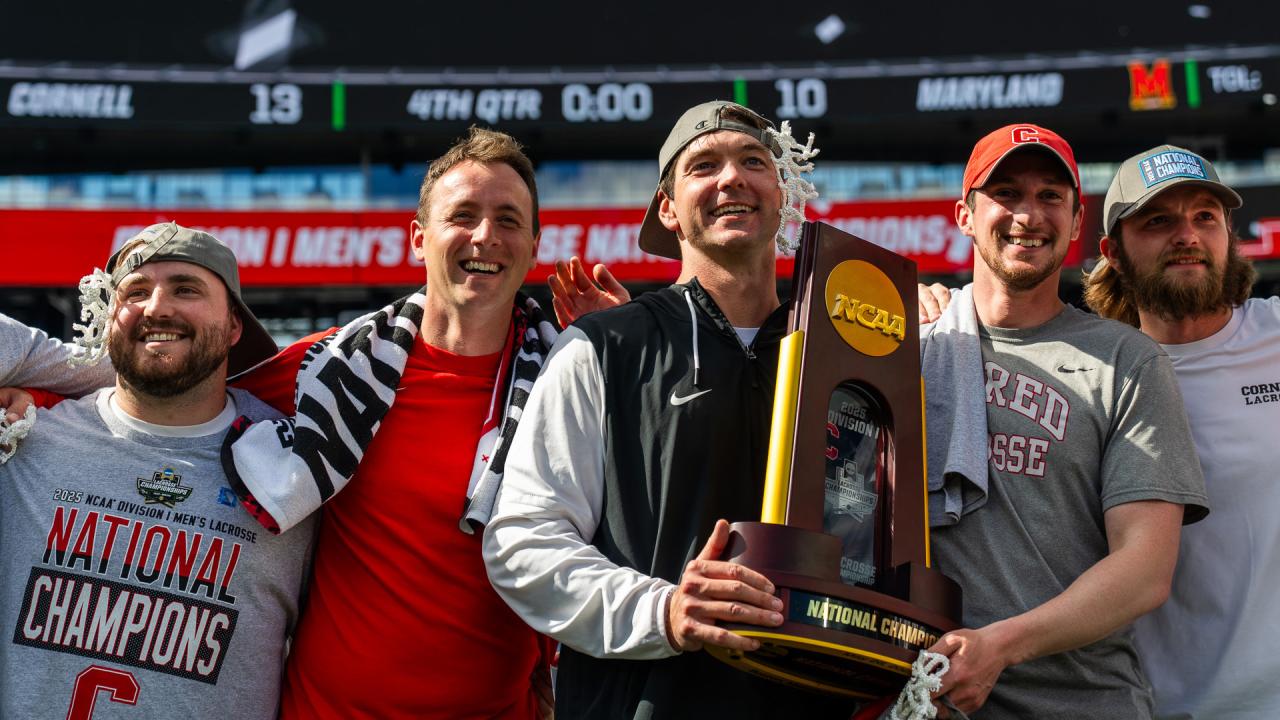
EVEN AS 32,512 FANS PACKED THE STANDS of Gillette Stadium, the absence of three men felt at times heavy and at times uplifting.
McEneaney might not have been there, but French has kept him so very alive in the heart of the program. Boiardi might not have been there, but his family celebrated with the championship trophy with the type of ear-to-ear smile he would smile. And Moran might not have been there, but Buczek believed him to be watching over the field that day.
Cornell’s ghosts aren’t haunting. They’re warm, they’re inviting, and they’re proud.
“He’d say, ‘It’s great to be here,’” Buczek said of Moran, who died on April 24, 2022. “The cool part about Richie is that, until his final days, he was always around. He was the conduit, and he was the connector, and he was the guy that didn’t just ride off into the sunset. He kept giving back to Cornell lacrosse. He kept making sure that the culture was strong, that the family was strong.”
It was Moran who helped Buczek adjust to his own playing career at Cornell when at times the kid from Ohio felt overmatched and overwhelmed. Moran was then an early supporter of Buczek’s when he was named the interim head coach as a 26-year-old who felt like he was “drinking from a fire hose.”
But Buczek and Stevens poured their heart and soul back into the program, just like they were taught to do. As did assistants Paolo Cifferi and Max Tennant. Pannell said it’d be a disservice not to credit strength and conditioning coach Tom Howley, who has been with the university since 1995, for the team’s success, too. Longtime athletic trainer Jim Case, who died suddenly in 2020 at the age of 55, was a key figure in Ithaca for three decades.
Many people went into the making of this team, both past and present. Some at the forefront, and so many others behind the scenes.
“There is nothing like the Cornell lacrosse family. There isn’t,” Pannell said. “Through victory, through tragedy, we stick together, and we support each other.”
The Long Red Line celebrated this title just as passionately as the players and coaches whose raw emotion made for one of the best feelgood stories in lacrosse history. This was for them, too.
Because without them, there would be no Cornell legacy. No Cornell men.
“This place is very endearing,” Buczek said. “This place changes you, and for the better.”
Kenny DeJohn
Kenny DeJohn has been the Digital Content Editor at USA Lacrosse since 2019. First introduced to lacrosse in 2016 as a Newsday Sports reporter on Long Island (yes, ON Long Island), DeJohn specializes in women's game coverage. His search for New York quality pizza in Baltimore is ongoing.
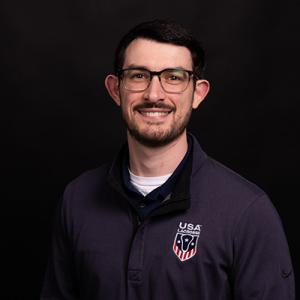
Related Articles
